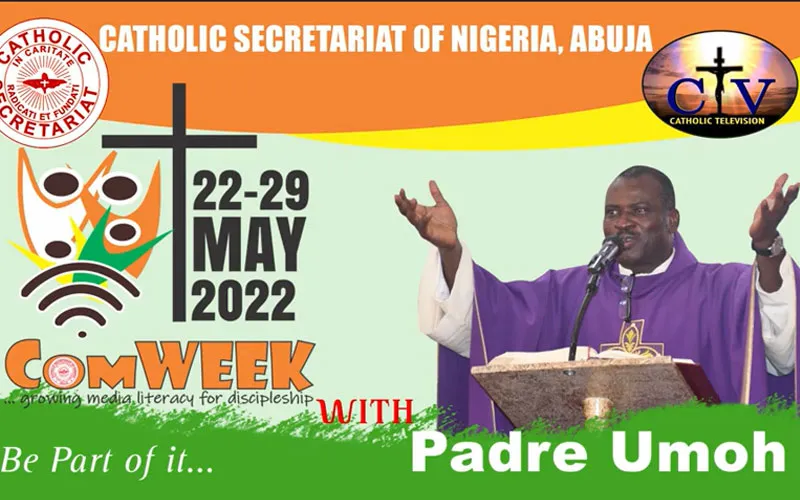Spearheaded by CSN, the program seeks to promote awareness on the teachings of the church on media, exposure to some basic skills of media literacy, and sharing of reflections on the Holy Father’s Message for 2022 WCD.
In his May 25 lecture of COMWEEK organized under the theme, “Building Faith through Listening”, ahead of the 56th WCD, Fr. Umoh said that cartoon language is easier and equally understandable by children who are yet to start speaking.
The member of the Clergy of the Archdiocese of Lagos said that children nowadays know so much through watching cartoons and that if Catechism classes are presented in that form, then the classes will be more enjoyable.
“Children begin to enjoy cartoons as early as before they are one-year-old; today before they are one-year-old even a child that cannot talk to you yet is already understanding cartoons; so it's a very powerful medium that we must pay attention to and invest in as a church,” he said.
The Nigerian Catholic Priest said that the media is a tool that the church cannot afford to ignore because it is pervasive.
He said, “Media today rules everything more than ever. You want to travel, you need media to book tickets; you want to go to school, you need the media to research everything; even in the church you need media.”
“The church in our official documents, has encouraged Priests, Bishops, pastoral agents all of us in the church to embrace the media,” Fr. Umoh said, and added, “The problem is that the church is putting all those things in writing but we are not really making use of them.”
He continued, “The media is not an option; it is compulsory and an integral part of the life of a Priest and the entire church; it is the task of Priests and all pastoral agents to carefully and creatively employ these new tools and new language of the media to repackage the message of Christ in such a way that it is understood by children, youth and adult alike.”
Fr. Umoh said that the message is as good as the medium used, adding that the appropriate method is corporate packaging in the current language. He said that packaging in the Catholic church involves speaking the truth.
“Those who speak against the church only speak against the limitations in the church, the human elements in the church but never about the truth of the source,” he said, and added, “Unfortunately, at times we are too weak, at times we are too careless to package the truth as revealed by Christ.”








